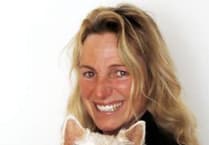Last week I attended the annual Welsh Dairy Show in Carmarthen, writes NFU Cymru Dairy Board Chairman Jonathan Wilkinson.
The weather was extremely turbulent with persistent, heavy rain, which seemed in keeping with the ‘perfect storm’ NFU Cymru warned was facing the industry on the morning news bulletins.
While the event was very well attended, the main topic talking point was the varied threats facing the Welsh dairy sector at present. Whilst the long-term outlook for the sector is more positive, the level of concern and worry among all those in attendance about the immediate future was palpable.
It has been a turbulent few years for the dairy sector: the Coronavirus pandemic presented significant challenges for processors and retailers, with the impact being felt keenly at the farm gate. While prices subsequently rose and the price paid per litre of milk last year was the best it had been for some time, positivity and farmer confidence has been eroded by a sharp decline in milk prices, the average reduction being 30%. It means, on average, farmers are receiving 15 pence less for a litre of milk than they received last Christmas. It would be difficult for any business to swallow such reductions, but for a farming business that needs long-term stability and ongoing investment it is extremely challenging.
High inflation has affected everyone in the UK and dairy farmers are no different, meaning that at the same time as counting the cost of falling milk prices, dairy farmers must also contend with an increase in their cost of production. While input prices have fallen from their spike, they remain historically high and ‘agri-inflation’ is still thought to be running at 40% compared to 2020. All of this means many dairy farmers across Wales are receiving less for their milk than it costs to produce.
To add to farmers’ woes, there is also ongoing uncertainty around future policy in Wales. Scheme outlines for the new 2025 Sustainable Farming Scheme look particularly difficult for farmers in the dairy sector to work to. Couple this with the ongoing threat of bovine TB to the sector – regrettably we’re still seeing 10,000 Welsh cattle culled every year because of the disease – and it is no wonder that there is such a high level of concern among our hard-working dairy farmers.
NFU Cymru raised the profile of these issues to the public on mainstream media during the Welsh Dairy Show and we continue to lobby government and key movers and shakers throughout the supply chain to bring about fairness for every link in the food chain, not least the primary producer.
Despite the challenges, it was encouraging to see some of the remarkable positivity from young farmers, none more so than Harri Vaughan who I was delighted to present the NFU Cymru Dairy Stockperson of the Year Award to. Harri is a great example of an enthusiastic young dairy farmer driving his business forward. I only hope that government can bring forward policies that support the next generation to realise their ambitions.




Comments
This article has no comments yet. Be the first to leave a comment.